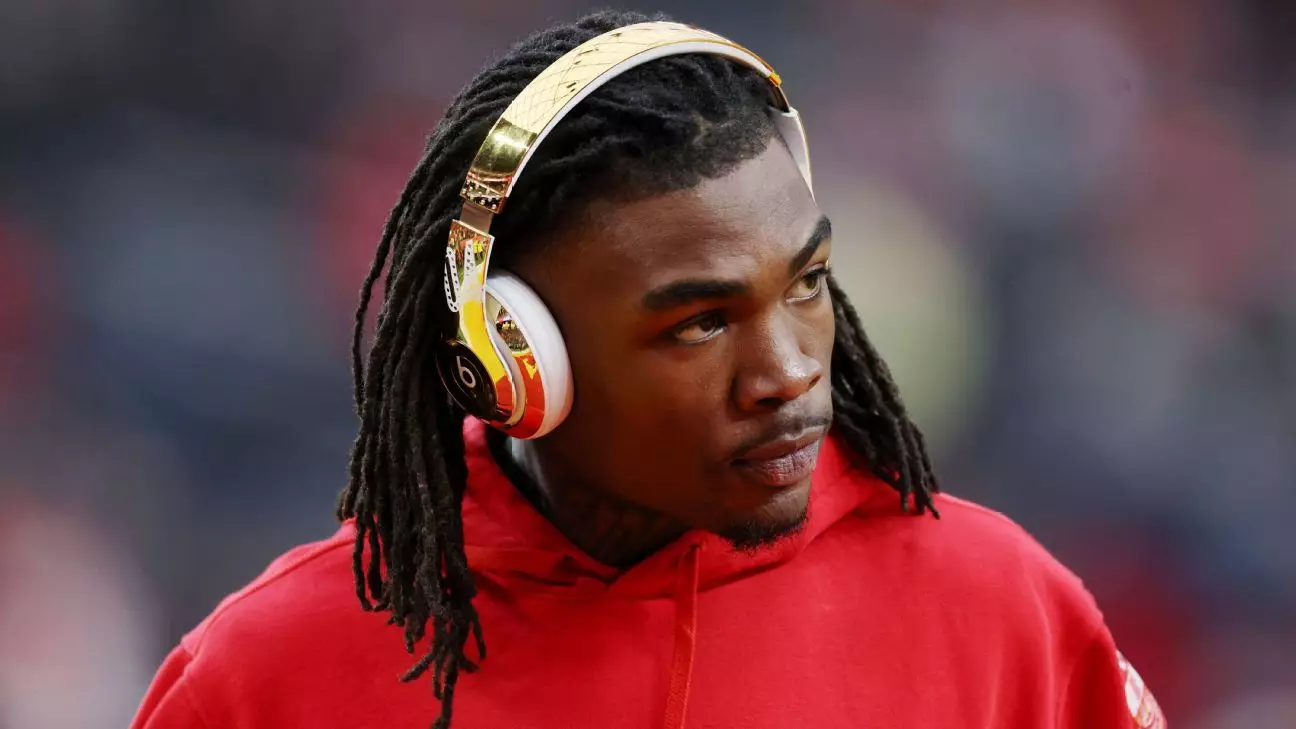The recent legal consequences faced by Kansas City Chiefs wide receiver Rashee Rice illuminate a darker truth about how society often handles recklessness among the wealthy and famous. Rice’s actions—speeding at nearly 120 mph in a high-performance SUV—culminated in a serious crash that could have resulted in fatalities. His subsequent plea deal, resulting in a mere 30 days behind bars and five years of probation, underscores a troubling tendency: the dense cushion of privilege that shields some from the full repercussions of their dangerous behaviors. Far from an isolated incident, this case exemplifies how wealth and fame can distort justice, often reducing citizens with less influence to second-class citizens when facing similar charges.
In a society fixated on celebrity culture, this incident exposes how the judicial system navigates the complex intersection of fame, accountability, and the public’s expectation of moral integrity. Rice’s ability to pay over $115,000 in restitution before sentencing indicates that financial influence can, at times, mitigate the severity of consequences. This isn’t merely about one athlete’s misjudgment; it speaks to a broader systemic issue where privilege often allows the powerful to escape the stakes that others would face in comparable circumstances.
The Illusion of Redemption and the Fight for Justice
Rice’s public apology, though seemingly sincere, plays into a common narrative: that remorse can absolve reckless behavior. He expressed profound sorrow for the damages caused and urged others to obey speed limits and drive responsibly. However, such sentiments risk becoming superficial when juxtaposed with the reality of his actions. Speeding at 119 mph in a vehicle capable of immense destruction is a reckless act, particularly when involving innocent lives on a busy highway.
Furthermore, Rice’s case exemplifies the problematic tendency for sports figures and celebrities to downplay the gravity of their actions. The message sent to young fans and the broader community is disconcerting: that high speeds, even when they lead to accidents, can be forgiven if accompanied by a perfunctory apology and monetary restitution. The social implications are troubling—these narratives reinforce the idea that a second chance can be bought, and that accountability can be circumvented through legal maneuvering or financial restitution.
The NFL’s stance, hinting at a suspension during the preseason, further highlights the performative nature of such disciplinary actions. It’s a symbolic gesture rather than a substantive determent—more about maintaining a clean public image than a genuine attempt at discipline. The league benefits from the star power while simultaneously allowing problematic behavior to be swept under the rug.
A Reflection of Societal Values and the Need for Genuine Accountability
The larger concern extends beyond Rice himself. His case prompts a critical question—are society’s existing frameworks designed to genuinely promote accountability, or are they merely superficial tokens of discipline that preserve the status quo? When privileged individuals feel they can navigate the justice system with relative ease, it sends a dangerous message: that success and influence can insulate one from the consequences of dangerous behavior.
This incident also reignites debates about youth, privilege, and role models. Athletes and celebrities wield enormous influence over societal norms and behaviors. When they engage in reckless conduct without facing proportionate consequences, it undermines the values of responsibility and safety we should be fostering. It’s imperative that institutions like the NFL, and the legal system, start prioritizing meaningful repercussions over public relations shifting strategies.
In a fairer society, accountability isn’t dictated by social status or wealth. It involves a rigorous and transparent process that ensures those who endanger others are forced to confront the reality of their actions—and face penalties that truly reflect the severity of their misconduct. Restitution and legal leniency, while important, should operate alongside consequences that serve as genuine deterrents, not just symbolic gestures.
Ultimately, the Rashee Rice incident acts as a mirror reflecting societal priorities—are we valuing redemption and image over moral responsibility and safety? If justice continues to be skewed in favor of the privileged, it fosters an environment where reckless and dangerous behavior can be minimized but not genuinely deterred. Society must recognize that true accountability requires more than monetary restitution and token suspensions; it demands a fundamental reevaluation of how we treat those entrusted with influence and power.


Leave a Reply